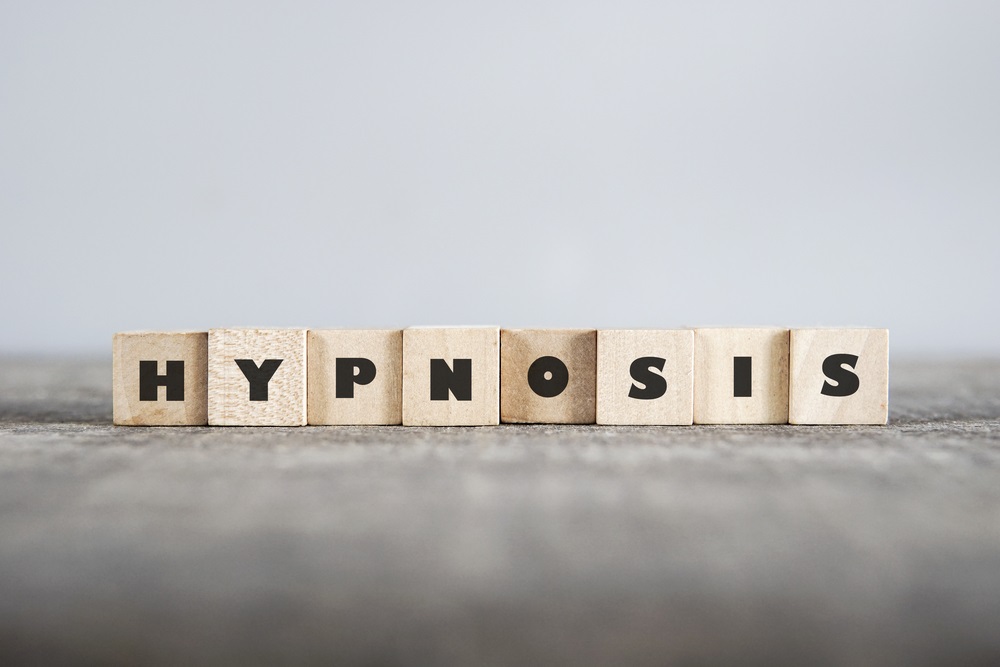By Eric Spiegel, PhD
October 15, 2018
As a psychologist with an expertise in clinical hypnosis, I am often asked questions about how hypnosis works, how it fits into therapy in general, and anxiety treatment in particular.
“What is hypnosis?”: Hypnosis is a state of consciousness that is characterized by focused attention (also known as ‘absorption’) on the one hand, and dissociation, on the other hand. What does that mean? It means that any time you focus really carefully on something, by default you will be less focused on other things. Ever been really into an article, video, or text on your phone while walking down the street… and walked straight into a street sign? It is hard to be focused on two things at once! That is why the ‘no texting while driving’ laws exist! Or conversely, have you ever been stopped at a red traffic light in your car lost in your thoughts… only to be snapped out of your reverie by someone honking you from behind because the light turned green? Same concept at play here.
Now that you understand how naturally occurring states of hypnosis are, imagine if your talent could be harnessed into a therapeutic treatment to help you with a health or mental health concern. This is where the umbrella term ‘clinical hypnosis’ comes in. Clinical hypnosis pertains to the use of hypnosis in health or mental health care treatment by a licensed professional to treat a particular issue, concern, disorder, or illness. It is also often utilized in such treatments to enhance wellness and strengths. The procedure of clinical hypnosis involves your treatment provider eliciting a hypnotic state (using an assortment of focusing techniques), offering hypnotic suggestions related to your treatment goals in the hypnotic state, and guiding you through a re-alerting process into a regular state of alertness. I often tell my patients “any suggestion or technique used in hypnosis is something that I could offer in traditional therapy.” As a psychologist, I believe that hypnotic suggestions can and should be therapeutic in nature. Hypnotic suggestions involve the use of language, pacing, imagery, and sensory involvement.
“Will hypnosis make me asleep or unconscious?” No. Hypnosis is not something that is ‘done’ to someone – it is a participatory and collaborative process. Contrary to the term often used in pop culture, you will not “go under” hypnosis. In fact, most patients report a juxtaposition of heightened mental focus and relaxed physiological experiencing.
“Am I hypnotizable?” Hypnotizability is a characteristic that has hereditable (e.g. trait) and environmental aspects (e.g. life experiences). There are formal hypnosis assessment measures used by researchers such as the Hypnotic Induction Profile (HIP). Clinicians also use informal assessment of hypnotic phenomena, e.g. non-verbal markers of hypnotic responsiveness. Most people are moderately hypnotizable, which is all that is necessary to benefit from clinical hypnosis.
“I have really bad anxiety. Will hypnosis work on me?” You don’t have to look very far on this website to come across the term ‘anticipatory anxiety.’ Many people with anxiety disorders have anticipatory anxiety. That is, once people have had an unexpected experience that elicited a negative or uncomfortable reaction, they can often become worried and/or expectant that it will happen again. Similarly, sometimes people will sometimes generalize their anxiety from a particular stimulus to related stimuli. Here is what I tell prospective patients: anticipatory anxiety and generalizable anxiety ARE negative self-hypnotic suggestions. You are literally giving yourself the suggestion that you are going to become anxious… and voila… you become anxious. So, if you are talented at giving yourself negative hypnotic suggestion that means that you are hypnotizable and also have the capacity to be responsive to positive hypnotic suggestion! Anxious people tend to be at least moderately hypnotizable. They are already skilled at imagining something vividly and experiencing the reality of that imagining in an emotional and or physiological reaction.
“How can hypnosis be used in anxiety treatment?” Clinical hypnosis lends itself well as an adjunctive anxiety treatment modality. CBT treatment techniques such as imaginal exposure, hierarchical desensitization, operant and classical conditioning, and schema modification can all be incorporated within imagery visualization as hypnotic suggestions. Hypnosis can also be integrated with insight-oriented anxiety approaches used to understand and work through the origins of anxiety symptoms. For example, hypnotic daydreaming is a way of generating naturalistic and projective ideas and images about the core needs, wishes, and fears underlying anxiety. Lastly, attachment-focused hypnosis is a method for developing and cultivating positive internal resources to promote healing from relational attachment trauma and associated developmental wounds.











